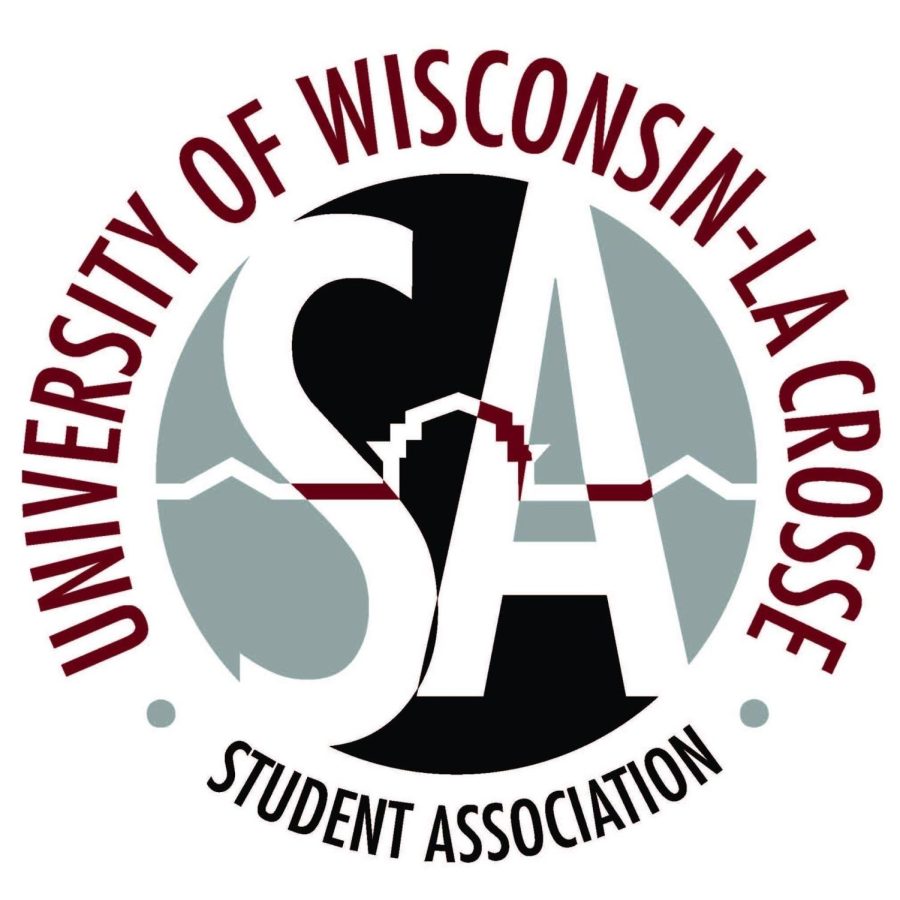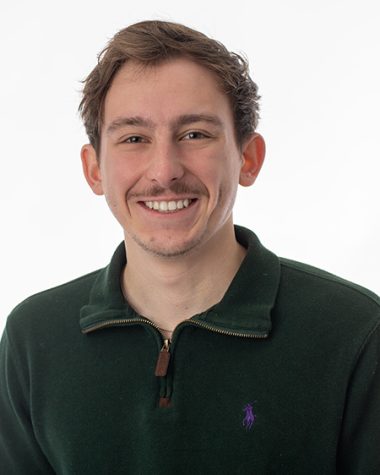Student Association hosts General Education Coordinator Tim Dale to discuss future program changes
March 2, 2023
On Wednesday, March 1, the University of Wisconsin-La Crosse Student Association (SA) met with General Education Coordinator Timothy Dale to discuss first-year seminar (FYS), and University Assessment Coordinator Patrick Barlow to discuss data collection on campus. SA also passed three resolutions and swore in three new senators.
Dale opened the meeting by discussing the new general education coordinator position. Dale said UWL was one of the only schools in the country that did not have one, and he is in the process of a new general education proposal.
“I know that gen eds sometimes have the reputation of being an irritating thing that you have to jump through in order to graduate, but I can assure you that it is really what makes us a university,” said Dale. “A major standing by itself is a technical degree and so general education really is what makes a liberal arts degree what it is, whether that be in the sciences, humanities, or the social sciences.”
Dale said that starting in 2025, incoming students will only need one math course for the general education requirement. “This is just [general education] requirements and not your major requirements. So, if your major requires multiple math courses all of that will still be in place; this is going to be the [general education] requirement. Currently, we have two math requirement courses, and it will go to one if this revision is approved.”
“We currently have the possibility of having the arts and aesthetics category go from four credits down to three. Although, we are still discussing whether that is going to be happening with this revision,” said Dale.
Dale continued, “Big changes would happen in the next category which is going to be called ‘integrated global perspectives.’ There will be an English and humanities course which is what we have currently and a history course that we have currently. But a big addition is a brand new category that is going to be called ‘the planet that sustains us,’ which is going to be a sustainability category. It is going to be courses from all across the university. Not just science, but also social sciences and humanities. This would be an environmentalist sustainability section of gen ed that will be brand new, and we are excited about that.”
“The final thing that is a big change is called ‘global emphasis,’” said Dale. “We really want to find a way for study abroad courses to count better, and we want to find a way for languages to count more, and we want to find a way for students to take courses in global areas and have them apply.”
College of Arts, Social Sciences, and Humanities (CASSH) Senator Casey Christ said, “I believe that some sort of legal studies credit should be required. The last couple of years that I have been a part of SA I have noticed that lots of people do not know their First Amendment rights or their rights at all and I think it would be a very beneficial thing for a [general education course] to cover.”
Dale said, “I totally agree with [Senator Christ’s] point about students not knowing things that we really should know. There are other universities that require some kind of political science class, and we are just not one of those.” Dale continued, “UWL has not done that historically, and it is really hard to get a new requirement. When you think about resources for professors, and resources for classrooms. It is an ongoing conversation about how we fit in with the other curriculum in our program. We continue to make arguments that it should be required and we are just one little voice.”
Patrick Barlow then talked to SA about the National Survey of Student Engagement (NSSE). “What we are hoping to do is ask a lot of questions about students’ experiences in the classroom, on campus, the types of skillsets that you feel your education is providing you, and your satisfaction with various relationships on campus…The entire survey should take 10-12 up to 15 minutes.”
“What we are really looking for is a good response rate. Having a good response rate gives us more trust in the results that we are seeing. We used to be seeing a 50% rate in 2010. The last time that we did this in 2020 we were close to 25% overall.” Barlow continued, “We have a little incentive with drawings for bookstore gift cards for students who participate by March 24.”
College of Business Administration (CBA) Senator Ryan Sperling asked Barlow what was being done to ensure confidentiality in the survey. Barlow said, “The survey, to be clear, is not anonymous, but it is held confidential. So, in the reports that we get back, they are presented at the group level. So, we get a score for the first-year students, and we get a score for the senior students. We never report individual student results or release those to anyone.”
SA then moved on to organization reports, and Asian Student Organization (ASO) Senator Grace Guyer said, “[ASO] is holding their annual Feast of the East event on March 25. Doors will open at 4:30 p.m. and the program will run until 8:00 p.m.”
The first resolution passed at this meeting appointed vacant spots in SA. SA voted to suspend the two-week rule to fill the vacant seats. CBA Senator Marlee Simpson, College of Science and Health Senator (CSH) Morgan Hahn, and School of Education (SOE) Senator Anna Giese were all sworn in by SA President Grant Mathu.
The second resolution SA passed was to clarify the use of the Green Fund toward student stipends and jobs. This resolution clarifies that the Green Fund can pay students a stipend, but they cannot pay themselves to complete a job. The two-week rule was also suspended during this resolution which was passed unanimously.
The third resolution that SA passed recommended that Faculty Senate encourages instructors to adopt the term “student hours” instead of “office hours.” The resolution states, “The term office hours feels instructor-focused rather than student-focused, and can be misleading, especially for first-generation students. This resolution was unanimously passed.
The last resolution was to put CASSH Senator Kate Lochner and CSH Senator Sarah Fleegal on the Election Commission. The two-week rule was suspended and the resolution was passed unanimously.







